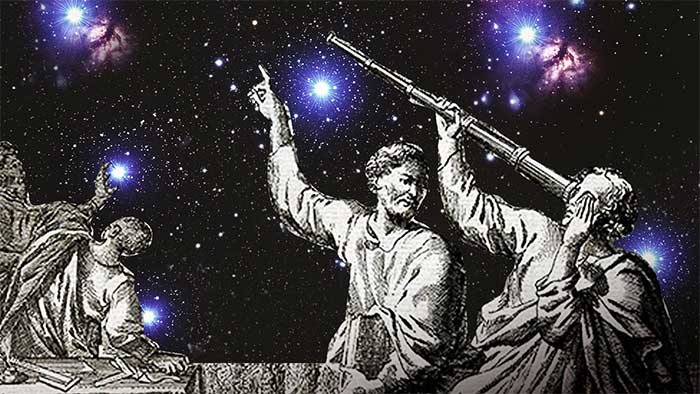Both astrology and astronomy look to the skies for predictions. At first glance, they may seem similar, but there are significant differences between them.
Astrological theories suggest that the positions of planets and stars influence individuals and their life events: work, personality, and love.
Astrologers make predictions based on the positions of planets at the time of your birth, according to the IFLScience website.
In contrast, astronomy predicts phenomena such as the movements of planets and the expansion of galaxies.
Astronomers explain their predictions based on properties like mass, distance, and gravity.

Astrology is not considered a science – (Image: BIG THINK)
Anthropology professor Talia Dan-Cohen and philosophy professor Carl Craver, both teaching at Washington University in St. Louis, argue that it is important to separate the question: Is astrology a science? And is it right or wrong?
Astrology makes claims that seem scientific
At its core, science involves making predictions and testing them in reality.
Astrologers, like astronomers, also make scientific claims about the “world of stars.”
For a long time, until the 17th and 18th centuries, astrology and astronomy were practiced side by side.
After all, knowing the positions of planets relative to stars is essential for making accurate predictions about how they affect human affairs.
Even famous astronomers like Galileo and Kepler practiced astrology. They wanted to understand how everything worked to predict how events would unfold in the future.
Astrological predictions remain vague
But here lies the issue: Testing the predictions that astrology makes about human life is merely speculation.
Currently, there is no evidence that galaxies can influence human lives. All scientific claims made by astrology regarding the “world of stars” are false. The scientific basis for astrological claims is entirely vague. For centuries, astrology has remained at the level of making predictions.
Meanwhile, theories in astronomy have continuously evolved over the years, with advancements in technology. Predictions and astronomical theories are regularly revised to align with increasingly accurate measurements.
For instance, Einstein’s theory of general relativity has surpassed Newton’s theory of gravity, as it accurately predicts the closest point of Mercury’s orbit to the Sun each year.
Why is astrology still popular?
But why do so many people find astrology useful, even when its predictions lack solid foundations?
In reality, nearly 30% of Americans believe in astrology.
It is one of many tools we can use to tell stories about ourselves, aiming to understand who we are. We seek narratives to explain: Why are we the way we are? Why do seemingly inexplicable experiences happen to us?
In this sense, the success of astrology lies in its ability to resonate with the psychology of those who are confused.
In some cases, astrology can even serve as a helpful prompt for self-reflection.
Perhaps astrology is useful in those contexts. The stars are merely illustrations for the predictions.


















































